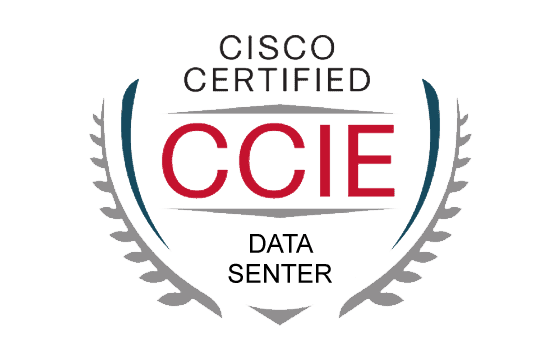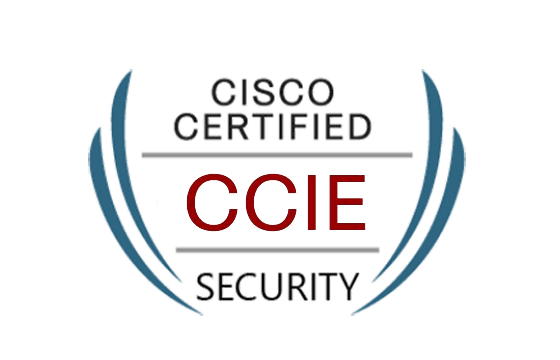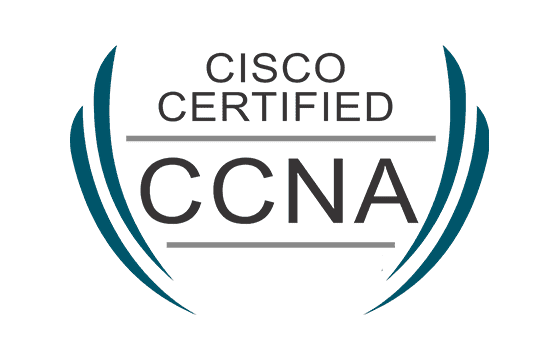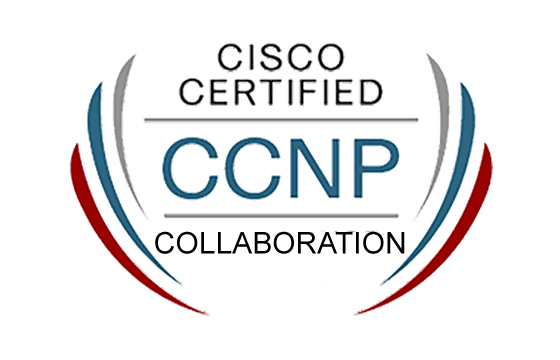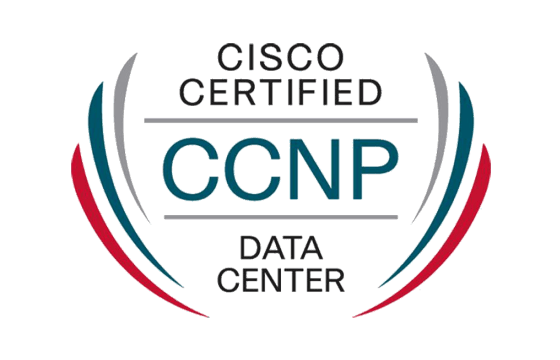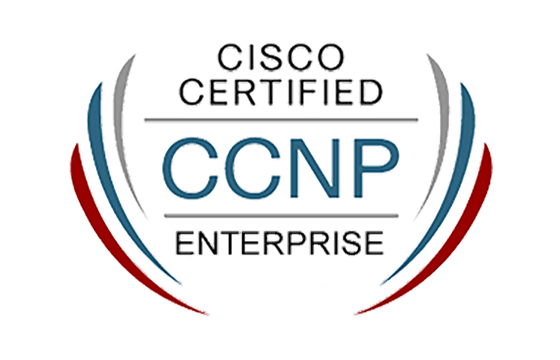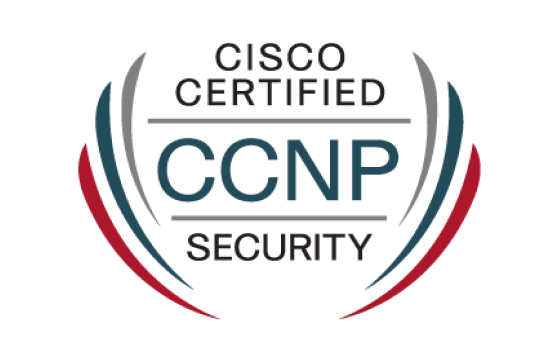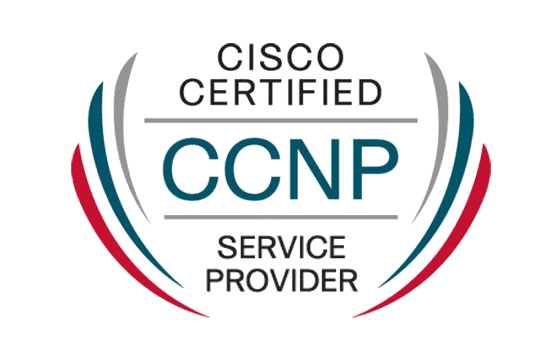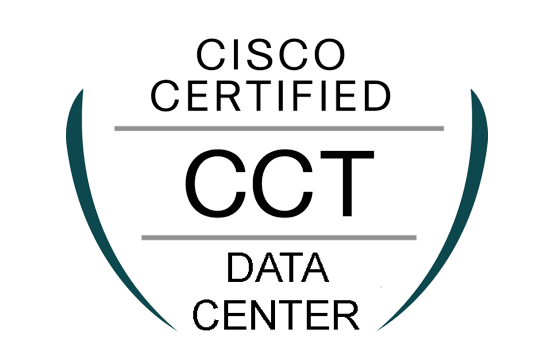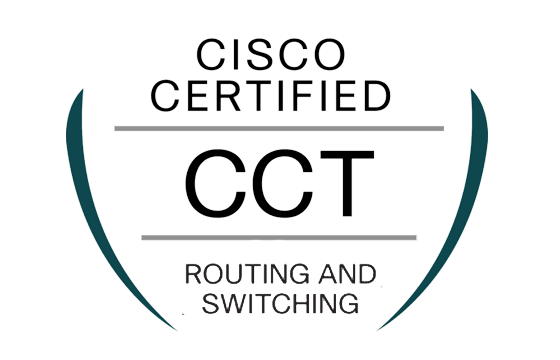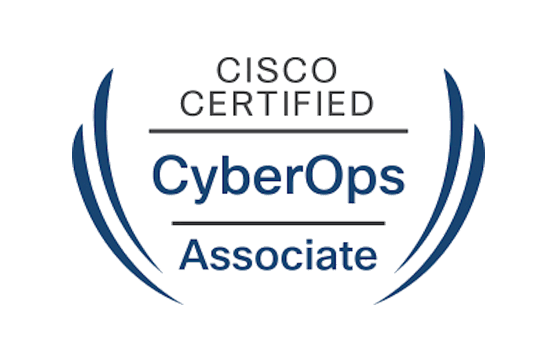Pass Your Cisco CCNP Security Certification Easy!
Cisco CCNP Security Certification Exams Questions & Answers, Accurate & Verified By IT Experts
Instant Download, Free Fast Updates, 99.6% Pass Rate.

Implementing and Configuring Cisco Identity Services Engine (300-715 SISE)
Includes 384 Questions & Answers
Implementing and Operating Cisco Security Core Technologies
Includes 647 Questions & Answers
$139.98
Or Purchase CCNP Security Exams Individually
| 300-710 | Securing Networks with Cisco Firewalls | $69.99 | Add to cart |
| 300-715 | Implementing and Configuring Cisco Identity Services Engine (300-715 SISE) | $69.99 | Add to cart |
| 300-720 | Securing Email with Cisco Email Security Appliance (300-720 SESA) | $69.99 | Add to cart |
| 300-725 | Securing the Web with Cisco Web Security Appliance (300-725 SWSA) | $69.99 | Add to cart |
| 300-730 | Implementing Secure Solutions with Virtual Private Networks (SVPN 300-730) | $69.99 | Add to cart |
| 300-735 | Automating Cisco Security Solutions (SAUTO) | $69.99 | Add to cart |
| 350-701 | Implementing and Operating Cisco Security Core Technologies | $69.99 | Add to cart |
CCNP Security Product Reviews
SIMOS dump is great
"I got the 300-209 vce dumps from Examcollection since it was the only one remaining exam I needed to pass to earn the CCNP security credential. Cisco mobility solutions and mobile security settings were my biggest weakness, and this file has really helped, especially the SSL and AnyConnect SSL and IPsec VPNs settings, maintenance and troubleshooting. I'm sure I would have failed otherwise!
Jerry B."
Very happy
"I have just passed the SISAS exam for my CCNP Security certification thanks to the premium vce dump from Examcollection. I am very happy with the experience and am about to get the SIMOS file for my last remaining CCNP exam. Passing the SISAS exam, 300-208, was a good experience thanks to the questions being real. There have been multiple questions on secure access with 802.1X and Cisco TrustSec, and it was all perfectly covered in my vce file. I'm very happy with Examcollection so far.
Antoinette R."
CCNP Security with VCE
"I passed the SIMOS exam after I for the Premium VCE file, and I am going to get vce dumps for other exams. I didn't expect much, but the questions were indeed real, and I was amazed when I realized that in the testing center. There have been a lot of VPN setup problems, Cisco security settings, and the like. I am a bit worried about the SISAS exam, but I think I will do great overall.
Justin M."
Valid dumps
"I got all 4 vce dumps for my CCNP Security exam and have already passed 2 of them: 300-206 and 300-207. The files contain about 80% of identical or nearly identical questions - and that's more than enough to pass, you just have to learn it. Remember that you need to know the VPN, since there are a lot of questions on setup of Cisco FlexVPN in point-to-point, hub-and-spoke, and spoke-to-spoke IPsec VPNs. I'm glad I got the dumps, otherwise I'd be in trouble with those.
Donald C."
I passed CCNP Security with ExamCollection
"I've been using Examcollection premium service for a long time, starting from my CCNA years back. This year, I got unlimited access to prepare for all 4 CCNP Security exams. And once again, I passed! All dumps are solid. Some are a bit better than others, but that probably depends on your luck with Cisco questions pool. Nevertheless, if the questions aren't identical - which they usually are - then they are very similar. I found the SITCS dump to be most helpful, along with the SIMOS - Cisco mobile security solutions are tricky, but this vce has really helped.
Dimitry G."
Download Free CCNP Security Practice Test Questions VCE Files
| Exam | Title | Files |
|---|---|---|
Exam 300-710 |
Title Securing Networks with Cisco Firewalls |
Files 1 |
Exam 300-715 |
Title Implementing and Configuring Cisco Identity Services Engine (300-715 SISE) |
Files 1 |
Exam 300-720 |
Title Securing Email with Cisco Email Security Appliance (300-720 SESA) |
Files 1 |
Exam 300-725 |
Title Securing the Web with Cisco Web Security Appliance (300-725 SWSA) |
Files 1 |
Exam 300-730 |
Title Implementing Secure Solutions with Virtual Private Networks (SVPN 300-730) |
Files 1 |
Exam 300-735 |
Title Automating Cisco Security Solutions (SAUTO) |
Files 2 |
Exam 350-701 |
Title Implementing and Operating Cisco Security Core Technologies |
Files 1 |
Cisco CCNP Security Certification Exam Dumps & Practice Test Questions
Prepare with top-notch Cisco CCNP Security certification practice test questions and answers, vce exam dumps, study guide, video training course from ExamCollection. All Cisco CCNP Security certification exam dumps & practice test questions and answers are uploaded by users who have passed the exam themselves and formatted them into vce file format.
A Comprehensive Overview of Cisco CCNP Security Certification
The Cisco Certified Network Professional Security (CCNP Security) certification is a highly respected credential for network and cybersecurity professionals. It validates the ability to secure complex Cisco networks and demonstrates expertise in implementing security solutions, managing threats, and maintaining network integrity. Professionals who achieve this certification are recognized for their capability to protect enterprise networks against an ever-evolving landscape of cyber threats.
Cisco CCNP Security goes beyond basic networking skills, focusing on advanced security measures, including firewalls, VPNs, intrusion prevention systems, and identity management solutions. It is ideal for network engineers, security specialists, and IT professionals who want to enhance their knowledge and secure critical infrastructure effectively.
Career Benefits of CCNP Security Certification
Earning a CCNP Security certification offers a wide array of career advantages. One of the most significant benefits is enhanced career opportunities. Organizations are increasingly looking for experts who can design, implement, and maintain robust security solutions. A CCNP Security certification signals to employers that a candidate possesses both the technical skills and practical knowledge required for such roles.
This certification also opens doors to positions such as network security engineer, security analyst, cybersecurity consultant, and senior network administrator. Many of these roles involve strategic planning of network security, threat mitigation, and continuous monitoring of enterprise systems. Professionals with this certification are often considered for leadership roles in IT security teams due to their advanced knowledge.
Another key advantage is higher earning potential. Certified professionals are often compensated more generously because they bring specialized expertise that is critical to protecting organizational assets. Companies are willing to invest in skilled security personnel to prevent costly data breaches and ensure regulatory compliance.
Additionally, the CCNP Security certification enhances professional credibility. Cisco certifications are globally recognized and respected in the IT industry. Holding this credential demonstrates that a professional has mastered advanced security technologies and can handle complex network security challenges.
Exam Structure and Requirements
The CCNP Security certification involves one core exam and one concentration exam of the candidate’s choice. The core exam is designed to validate foundational security knowledge, while the concentration exam allows candidates to specialize in a particular security domain. This structure provides flexibility and enables professionals to tailor their certification path according to career goals.
The core exam typically covers network security, threat detection, identity and access management, and infrastructure security. Candidates are expected to understand how to secure Cisco networks, implement advanced firewall configurations, monitor traffic for malicious activity, and integrate security policies across various devices.
Concentration exams offer specialized tracks, including advanced firewall deployment, secure access, VPN implementation, and threat-focused security solutions. Choosing a concentration allows professionals to deepen their expertise in areas that align with their current roles or career aspirations.
While there are no formal prerequisites, Cisco recommends that candidates have hands-on experience with Cisco security solutions and a solid understanding of networking fundamentals. Practical experience is crucial for grasping the concepts covered in the exams and for applying them effectively in real-world scenarios.
Core Knowledge Areas
To succeed in the CCNP Security certification, professionals must master several core knowledge areas. Network security is the foundation of the certification. It includes understanding firewalls, VPNs, endpoint protection, and securing routing and switching devices. Network security knowledge enables professionals to prevent unauthorized access and safeguard sensitive data.
Threat detection and mitigation are also critical. Professionals must learn how to identify potential vulnerabilities, monitor network activity, and respond to security incidents. This includes understanding intrusion detection and prevention systems, analyzing security logs, and implementing mitigation strategies to minimize risks.
Identity and access management is another essential area. This involves configuring secure authentication methods, managing user identities, and controlling access to network resources. Proper identity management ensures that only authorized personnel can access sensitive systems and data.
Infrastructure security is equally important. CCNP Security professionals must know how to secure network devices, implement policies that protect the infrastructure, and apply best practices for maintaining a secure environment. This knowledge helps prevent attacks that exploit network vulnerabilities and ensures the overall integrity of enterprise systems.
Practical Skills Developed Through Certification
One of the greatest advantages of pursuing the CCNP Security certification is the practical, hands-on skills it provides. Certified professionals gain the ability to design, implement, and maintain secure network solutions that meet the demands of modern enterprises. They become adept at configuring firewalls, setting up VPNs, deploying intrusion prevention systems, and managing identity access policies.
These skills are critical in real-world scenarios where organizations face sophisticated cyber threats. CCNP Security professionals learn to monitor network traffic, detect suspicious behavior, and respond to incidents efficiently. They can identify vulnerabilities before they are exploited and implement proactive measures to strengthen security.
Moreover, the certification emphasizes integrating security solutions across multiple devices and platforms. This ensures that professionals can create comprehensive security architectures that protect all aspects of an enterprise network. It also prepares them to work with cross-functional teams and communicate effectively about security strategies and solutions.
Industry Relevance of CCNP Security
In today’s digital era, network security is more important than ever. Organizations face increasing cyber threats, including ransomware attacks, data breaches, and sophisticated phishing schemes. The demand for professionals who can secure networks and protect sensitive information has never been higher.
CCNP Security certification is highly relevant because it addresses these industry challenges. It equips professionals with the skills to implement security solutions that prevent, detect, and respond to threats. Employers value certified experts because they can safeguard networks, maintain compliance with regulations, and reduce the risk of costly security incidents.
Additionally, Cisco CCNP Security aligns with industry best practices and standards. Certified professionals are trained in up-to-date security technologies, protocols, and strategies. This ensures that organizations can rely on certified experts to implement robust and effective security measures that meet modern enterprise needs.
Emerging Technologies and Security Trends
CCNP Security also prepares professionals for emerging technologies and evolving security trends. With the rise of cloud computing, IoT devices, and remote work environments, network security challenges are becoming increasingly complex. Professionals must understand how to secure hybrid networks, protect cloud applications, and manage remote access securely.
The certification introduces candidates to advanced security solutions that address these trends. For example, understanding how to deploy secure access solutions ensures that employees can safely access corporate resources from any location. Knowledge of threat intelligence and advanced monitoring tools helps professionals detect and respond to cyber threats in real time.
Emerging threats, such as zero-day attacks and ransomware, require proactive security measures. CCNP Security prepares professionals to anticipate these challenges and implement strategies that minimize risks. This forward-looking approach makes certified experts invaluable to organizations navigating a rapidly changing digital landscape.
Real-World Applications of CCNP Security Skills
The skills gained through CCNP Security certification have direct applications in real-world scenarios. Network engineers can design secure network architectures that protect against unauthorized access and data breaches. Security analysts can monitor network activity, identify suspicious patterns, and respond to incidents quickly.
Organizations also benefit from professionals who understand compliance requirements and regulatory standards. Certified experts can ensure that network configurations and security policies align with industry regulations, reducing the risk of legal penalties and reputational damage.
CCNP Security professionals often lead initiatives to strengthen organizational security posture. They collaborate with IT teams to implement best practices, conduct security audits, and provide training for staff on security awareness. These contributions enhance overall security readiness and resilience against cyber threats.
Strategies for Success in CCNP Security
Success in achieving CCNP Security certification requires a combination of study, practice, and real-world experience. Candidates should start by thoroughly understanding the exam objectives and focusing on core knowledge areas. Building hands-on experience through labs and practice environments is essential for mastering practical skills.
Effective study strategies include breaking down complex topics into manageable sections, using visual aids to understand network topologies, and practicing troubleshooting scenarios. Joining study groups or online communities can provide additional insights and support.
Time management is also critical. Candidates should create a study schedule that balances theory, practical exercises, and review sessions. Consistent practice and reinforcement of concepts increase confidence and improve exam readiness.
Finally, candidates should embrace a mindset of continuous learning. Network security is a dynamic field, and professionals must stay updated with emerging technologies, threats, and best practices. Achieving CCNP Security certification is a significant milestone, but ongoing learning ensures long-term success and relevance in the industry.
The Cisco CCNP Security certification is more than just a credential; it is a pathway to mastering advanced network security skills and enhancing career prospects. It equips professionals with the knowledge and practical experience required to secure enterprise networks, manage threats, and implement robust security solutions.
With a focus on core security concepts, threat mitigation, identity management, and infrastructure protection, CCNP Security prepares professionals to face modern cybersecurity challenges confidently. The certification is highly valued in the IT industry and provides significant career benefits, including higher earning potential, global recognition, and opportunities for leadership roles.
As organizations continue to prioritize cybersecurity, the demand for certified professionals will only grow. CCNP Security offers a comprehensive roadmap for IT experts to enhance their skills, contribute to organizational security, and stay ahead in a rapidly evolving digital landscape. Achieving this certification demonstrates not only technical proficiency but also a commit
Cisco CCNP Security Core Exam Deep Dive
The Cisco CCNP Security certification is structured to validate both foundational and specialized security skills. The core exam serves as the backbone of this certification, assessing candidates’ ability to design, implement, and manage secure networks. It evaluates knowledge in key areas, including network security, threat detection and mitigation, identity and access management, and infrastructure security. Understanding the scope of the core exam is essential for professionals aspiring to excel in securing enterprise networks.
Network Security Fundamentals
Network security forms the foundation of the CCNP Security certification. Professionals must understand the principles of securing network devices, controlling traffic, and protecting sensitive data. Firewalls are a primary component, acting as the first line of defense by filtering traffic and preventing unauthorized access. Understanding firewall policies, deployment strategies, and advanced configurations is crucial for maintaining network integrity.
Virtual private networks (VPNs) are another essential aspect of network security. VPNs provide secure connectivity for remote users and branch offices, ensuring that data transmitted over public networks remains confidential. Professionals must understand different VPN technologies, including site-to-site and remote access VPNs, as well as encryption protocols that protect data in transit.
Endpoint security is also a critical component. Network devices, servers, and user endpoints must be protected against malware, unauthorized access, and exploitation. Professionals learn to implement security policies, deploy endpoint protection solutions, and monitor devices for compliance and potential threats.
Threat Detection and Mitigation
Identifying and mitigating threats is a core responsibility of security professionals. The CCNP Security certification emphasizes proactive strategies to detect and respond to cyber threats. Intrusion detection and prevention systems (IDS/IPS) are central to this effort. These systems monitor network traffic for suspicious activity, log events, and alert administrators to potential security breaches. Professionals must understand how to configure and manage IDS/IPS to provide real-time protection.
Analyzing security logs is another important skill. Logs from firewalls, routers, switches, and servers provide insights into network activity and potential anomalies. Professionals must be able to interpret these logs, identify patterns indicative of attacks, and take appropriate mitigation actions.
Mitigation strategies also include implementing access control policies, segmenting networks, and deploying advanced threat protection solutions. CCNP Security professionals are trained to respond to incidents quickly, minimizing the impact of attacks on organizational systems.
Identity and Access Management
Securing access to network resources is a vital part of enterprise security. Identity and access management (IAM) focuses on ensuring that only authorized individuals can access sensitive data and systems. Professionals must be proficient in configuring authentication methods, managing user accounts, and enforcing access policies.
Authentication methods include traditional username and password systems, as well as advanced solutions such as multi-factor authentication (MFA) and digital certificates. Implementing MFA adds an extra layer of security, reducing the risk of unauthorized access even if credentials are compromised.
Access control policies define which users can access specific resources, based on their roles and responsibilities. Role-based access control (RBAC) and policy-based access control (PBAC) are commonly used to enforce these rules. Professionals learn to design and apply access policies that protect critical assets while maintaining operational efficiency.
Infrastructure Security Strategies
Infrastructure security involves protecting the hardware and software that make up an enterprise network. CCNP Security candidates must understand how to secure routers, switches, and wireless access points, as well as cloud and hybrid network environments.
Securing devices involves implementing strong configurations, updating firmware, and disabling unnecessary services that could be exploited by attackers. Network segmentation is a key strategy, isolating critical systems from less secure areas of the network to reduce the potential impact of breaches.
Monitoring network performance and security is also crucial. Professionals use advanced tools to track device activity, detect unusual behavior, and respond to potential threats. This continuous monitoring ensures that networks remain secure and resilient against attacks.
Firewall and Advanced Security Solutions
Firewalls remain one of the most critical elements of network security. CCNP Security training emphasizes advanced firewall deployment techniques, including stateful inspection, application-level filtering, and threat intelligence integration. These skills enable professionals to create robust security policies that protect enterprise networks from both internal and external threats.
In addition to traditional firewalls, professionals must be familiar with next-generation security solutions. These include intrusion prevention systems, unified threat management (UTM) appliances, and advanced malware protection tools. Each solution has unique capabilities, and understanding when and how to deploy them is essential for comprehensive network defense.
VPN and Secure Connectivity
Secure connectivity for remote users and branch offices is a growing concern for organizations. VPNs are a fundamental component of network security, providing encrypted tunnels for data transmission. Professionals must understand VPN protocols, such as IPsec and SSL, and be able to configure both site-to-site and remote access VPNs.
VPN solutions also integrate with identity and access management policies to ensure that only authenticated users can establish secure connections. Monitoring VPN traffic for anomalies and performance issues is an essential skill for maintaining network integrity and availability.
Advanced Threat Protection and Monitoring
Cyber threats are constantly evolving, and CCNP Security candidates must be prepared to handle advanced attacks. Threat intelligence solutions provide real-time information about emerging threats, enabling proactive defense measures. Professionals learn to integrate threat intelligence with firewalls, IDS/IPS, and security information and event management (SIEM) systems.
Continuous monitoring of network traffic, endpoints, and applications is vital. Professionals must be able to identify unusual patterns, correlate events, and respond quickly to mitigate potential damage. This proactive approach reduces the likelihood of successful attacks and enhances the overall security posture of the organization.
Hands-On Experience and Practical Skills
The core exam emphasizes not only theoretical knowledge but also practical skills. Candidates are expected to configure, implement, and troubleshoot security solutions in real-world scenarios. Hands-on labs and simulations provide the opportunity to practice firewall configuration, VPN deployment, IDS/IPS management, and access control implementation.
This practical experience ensures that certified professionals are job-ready. They can design secure network architectures, respond to security incidents, and maintain compliance with organizational and regulatory standards. The ability to apply knowledge in real-world environments sets CCNP Security professionals apart from their peers.
Security Policies and Compliance
Developing and enforcing security policies is an essential responsibility of network security professionals. CCNP Security certification emphasizes the creation of policies that align with organizational objectives, industry standards, and regulatory requirements.
Professionals learn to assess network vulnerabilities, implement appropriate controls, and document security procedures. Policies may cover areas such as acceptable use, access control, incident response, and data protection. Ensuring compliance with these policies helps organizations avoid security breaches, legal issues, and reputational damage.
Preparing for the Core Exam
Preparation for the CCNP Security core exam requires a combination of study, practice, and real-world experience. Candidates should thoroughly review exam objectives, understand core concepts, and gain hands-on experience with Cisco security solutions.
Study strategies include using practice labs, reviewing configuration scenarios, and analyzing case studies. Time management is critical, as candidates must balance theory, practical exercises, and exam readiness. Joining study groups or professional communities can provide additional support and insights.
Continuous learning is also important. Network security is a dynamic field, and staying updated with emerging threats, technologies, and best practices ensures long-term success. Candidates who combine theoretical knowledge with practical experience are well-prepared to pass the core exam and excel in professional roles.
Real-World Applications of Core Exam Knowledge
The skills and knowledge tested in the core exam have direct applications in enterprise networks. Network engineers can design secure architectures, implement firewalls, and deploy VPN solutions to protect sensitive data. Security analysts can monitor network traffic, detect anomalies, and respond to threats in real time.
Organizations benefit from professionals who can ensure compliance with security policies, industry standards, and regulatory requirements. Certified experts can conduct audits, assess vulnerabilities, and recommend improvements to strengthen security posture. Their expertise helps organizations minimize risks and maintain operational continuity.
Emerging Security Trends
The CCNP Security core exam also prepares candidates for emerging trends in cybersecurity. Cloud computing, mobile devices, and remote work have introduced new security challenges. Professionals must understand how to secure hybrid networks, protect cloud applications, and manage access for remote users.
Advanced threat protection, zero-trust architectures, and automation are becoming increasingly important. CCNP Security candidates learn how to implement these solutions to reduce risk and enhance resilience. Staying ahead of evolving threats ensures that certified professionals remain valuable assets to their organizations.
The CCNP Security core exam provides a comprehensive assessment of advanced network security skills. It covers essential areas such as network security fundamentals, threat detection and mitigation, identity and access management, infrastructure security, and advanced security solutions.
Successfully completing the core exam demonstrates that a professional has the knowledge, practical skills, and strategic understanding necessary to secure enterprise networks. It prepares individuals for challenging roles, increases earning potential, and enhances credibility in the IT security industry.
As cyber threats continue to evolve, organizations rely on certified professionals to protect critical systems, ensure compliance, and implement proactive security measures. The CCNP Security certification, beginning with the core exam, equips candidates with the tools, strategies, and confidence to excel in the dynamic field of network security.
Concentration Exams and Specializations in Cisco CCNP Security
The Cisco CCNP Security certification provides flexibility through concentration exams, allowing professionals to focus on specialized areas of network security. These exams enable candidates to deepen their expertise in specific domains, making them highly valuable in targeted roles within cybersecurity teams. Choosing a concentration path aligns professional skills with career objectives, while also expanding practical knowledge in advanced security technologies.
Concentration exams are designed to complement the core exam, building on foundational skills while introducing advanced techniques and solutions. By mastering a specialization, professionals can address complex security challenges in enterprise networks, cloud environments, and hybrid infrastructures.
Overview of Concentration Exam Options
Cisco offers multiple concentration exams for CCNP Security candidates, each focusing on a unique aspect of network security. These options include secure access solutions, advanced firewall deployment, VPN and secure connectivity, and threat-focused specializations.
Secure access exams emphasize controlling user access, authentication, and identity management. Professionals learn to implement solutions that grant the right access to the right individuals while maintaining robust security controls.
Advanced firewall deployment exams focus on configuring, monitoring, and managing firewalls in complex enterprise networks. Candidates gain expertise in advanced policies, traffic inspection, and integrating threat intelligence.
VPN and secure connectivity exams highlight encrypted communications, site-to-site and remote access VPNs, and secure mobile access. Candidates develop skills to maintain confidentiality and integrity for data transmitted across public or hybrid networks.
Threat-focused specializations cover intrusion detection and prevention, advanced malware protection, and incident response. These tracks prepare professionals to proactively monitor, detect, and mitigate security incidents effectively.
Secure Access Solutions
Secure access is a critical aspect of enterprise security. Organizations must ensure that users have appropriate access to network resources based on their roles, responsibilities, and security clearance. Concentration exams in this area teach professionals to implement identity and access management policies, including authentication and authorization techniques.
Authentication can involve traditional username and password systems, multi-factor authentication, and digital certificates. Implementing robust authentication mechanisms ensures that only authorized individuals can access critical systems, reducing the risk of unauthorized breaches.
Authorization policies define which resources a user can access once authenticated. Role-based access control (RBAC) and policy-based access control (PBAC) are widely used methods to enforce these rules. Professionals learn to configure policies that balance security and operational efficiency.
Secure access solutions also include network segmentation, ensuring that users only access the parts of the network relevant to their roles. Segmenting critical systems reduces the attack surface and limits potential damage if a security breach occurs.
Advanced Firewall Deployment
Firewalls remain a central component of network defense. Concentration exams in advanced firewall deployment provide in-depth knowledge of firewall technologies, configuration techniques, and policy management.
Candidates learn to configure stateful firewalls that track the state of network connections and allow or block traffic based on established policies. They also study application-level filtering, which inspects traffic at the application layer, providing granular control over network communication.
Integrating threat intelligence into firewall operations enhances security by enabling the firewall to detect and block traffic from known malicious sources. Candidates also learn to implement high availability and redundancy configurations to maintain consistent security coverage across the network.
Firewall deployment skills are essential for professionals managing large-scale enterprise networks, where complex policies and multiple layers of security must work seamlessly to protect sensitive data.
VPN and Secure Connectivity
Secure connectivity is critical for modern organizations, especially with the rise of remote work and cloud computing. Concentration exams in this area focus on deploying and managing VPNs, secure remote access solutions, and encrypted communication channels.
Professionals gain expertise in configuring site-to-site and remote access VPNs, ensuring that data transmitted across public networks remains confidential. They also learn to integrate VPN solutions with identity and access management policies, ensuring that only authenticated users can establish secure connections.
Monitoring VPN connections for anomalies, latency, or potential security issues is another key skill. Candidates learn to troubleshoot and optimize VPN performance while maintaining strict security standards. Secure connectivity solutions help organizations maintain operational efficiency without compromising data protection.
Threat-Focused Specializations
The threat-focused concentration exams emphasize proactive threat detection, mitigation, and incident response. Candidates learn to deploy and manage intrusion detection and prevention systems (IDS/IPS), advanced malware protection tools, and security information and event management (SIEM) solutions.
Understanding threat intelligence is crucial. Professionals learn to collect, analyze, and act on information about emerging cyber threats. This enables organizations to anticipate attacks and implement preventive measures before threats materialize.
Incident response is another core skill in this specialization. Candidates are trained to detect security incidents, assess their impact, and respond effectively to mitigate damage. This includes isolating compromised systems, removing malicious software, and restoring secure operations.
The ability to analyze patterns in network traffic, detect anomalies, and respond swiftly to threats is invaluable in maintaining a secure enterprise environment. Threat-focused specialization prepares professionals for high-stakes situations where rapid, informed decision-making is essential.
Integration of Concentration Skills
Choosing a concentration exam allows professionals to focus on an area that complements their career goals, but the knowledge gained also integrates with other aspects of network security. For example, expertise in secure access can be combined with firewall deployment skills to create layered security policies.
VPN and secure connectivity knowledge enhances an understanding of access control, while threat-focused skills complement infrastructure security practices. By integrating concentration skills with core knowledge, CCNP Security professionals can develop comprehensive security strategies that protect all facets of an enterprise network.
Integration also involves coordinating security across teams and departments. Professionals learn to communicate complex security strategies, collaborate with IT staff, and align security policies with business objectives. This ensures a cohesive approach to network protection and organizational resilience.
Hands-On Experience in Specializations
Practical experience is critical for mastering any concentration area. Candidates are encouraged to engage in hands-on labs, simulations, and real-world scenarios to reinforce their understanding.
Secure access labs might involve configuring multi-factor authentication, setting up role-based access policies, and segmenting network resources. Advanced firewall labs could include creating policy rules, monitoring traffic, and implementing high-availability configurations.
VPN and secure connectivity labs often simulate remote access environments, requiring candidates to troubleshoot connection issues and optimize performance while maintaining encryption standards. Threat-focused labs involve monitoring simulated attacks, analyzing logs, and responding to security incidents effectively.
This hands-on experience ensures that certified professionals can translate knowledge into practical solutions, which is essential for success in real-world enterprise environments.
Career Impact of Specialization
Specialization within the CCNP Security certification enhances career prospects significantly. Professionals with concentration expertise are highly sought after because they bring targeted skills that address specific organizational needs.
For instance, experts in secure access solutions are valuable for organizations managing large remote workforces or complex identity systems. Advanced firewall specialists are critical in large enterprises where policy management and traffic inspection are essential. Threat-focused professionals are indispensable in organizations facing sophisticated cyber threats and requiring rapid incident response.
Specialization also allows professionals to pursue leadership roles within security teams, providing strategic guidance and mentoring junior staff. The combination of core and specialized knowledge positions CCNP Security holders as highly capable experts in network defense.
Emerging Trends in Security Specializations
Security specializations also prepare professionals for evolving trends in cybersecurity. Cloud adoption, hybrid networks, mobile workforces, and zero-trust architectures present new challenges that require specialized skills.
Secure access specialists focus on identity management and access control for cloud and hybrid environments. Firewall experts adapt to next-generation firewalls that integrate threat intelligence and application awareness. Threat-focused professionals stay ahead of ransomware, zero-day exploits, and other advanced attacks using proactive monitoring and response strategies.
Staying current with emerging technologies ensures that certified professionals remain valuable to employers and can effectively mitigate modern threats. Specialization provides a pathway to continuous growth in the dynamic field of network security.
Preparing for Concentration Exams
Preparation for concentration exams requires focused study and hands-on practice. Candidates should review exam objectives carefully, practice configuration scenarios, and understand practical deployment techniques.
Time management is essential, as concentration exams demand both theoretical understanding and applied skills. Study plans should include hands-on labs, case studies, and review of real-world scenarios. Engaging with professional communities and discussion groups can provide additional insights and guidance.
Continuous practice and reinforcement of concepts increase confidence and exam readiness. Candidates who combine theoretical knowledge with practical experience are well-positioned to excel in their chosen specialization.
Real-World Applications of Concentration Skills
Concentration skills have direct applications in enterprise environments. Professionals can implement secure access policies for remote teams, configure firewalls to protect sensitive data, deploy VPN solutions for secure communication, and monitor networks for potential threats.
Specialized knowledge enables organizations to maintain operational efficiency while reducing security risks. Professionals can lead initiatives to implement advanced security measures, conduct audits, and respond effectively to incidents. The practical application of concentration skills ensures that networks remain resilient against evolving threats.
Concentration exams in the Cisco CCNP Security certification allow professionals to focus on specialized areas of network security. Whether the focus is secure access, advanced firewall deployment, VPN and secure connectivity, or threat detection and mitigation, these exams deepen expertise and enhance career opportunities.
Specialization complements core knowledge, enabling professionals to design, implement, and maintain comprehensive security solutions across complex enterprise networks. Hands-on experience, practical application, and continuous learning are critical to mastering concentration areas.
By choosing a specialization, professionals align their skills with career goals, contribute to organizational security, and remain prepared for emerging trends and challenges in cybersecurity. The combination of core and concentration knowledge ensures that CCNP Security certified professionals are highly capable, adaptable, and valuable assets in the ever-evolving field of network security.
Preparing for Cisco CCNP Security Certification
Achieving Cisco CCNP Security certification requires a combination of theoretical knowledge, practical experience, and effective study strategies. Success in the exams is not solely about memorizing concepts; it demands an understanding of real-world network security challenges and the ability to apply solutions in enterprise environments. Proper preparation ensures that candidates are well-equipped to tackle the core and concentration exams while developing skills that are immediately applicable in professional settings.
Understanding Exam Objectives
The first step in preparation is thoroughly understanding the exam objectives. Cisco provides a detailed outline of topics for both core and concentration exams, specifying the knowledge areas, technologies, and skills required. Candidates should review these objectives carefully and create a structured study plan that covers each area comprehensively.
For the core exam, key topics include network security fundamentals, threat detection and mitigation, identity and access management, and infrastructure security. Concentration exams focus on specialized areas, such as secure access solutions, advanced firewall deployment, VPN and secure connectivity, or threat-focused security. Understanding the scope and weight of each topic helps candidates prioritize their study efforts effectively.
Developing a Study Plan
Creating a structured study plan is essential for managing time and ensuring complete coverage of exam objectives. A well-organized plan should balance theoretical study with hands-on practice, allowing candidates to reinforce concepts while gaining practical skills.
Study plans typically include a daily or weekly schedule with dedicated time for reviewing core topics, practicing configurations, and completing lab exercises. It is important to allocate extra time for areas that are particularly challenging or less familiar. Consistent, focused study over an extended period is more effective than last-minute cramming, especially for a certification as comprehensive as CCNP Security.
Utilizing Study Resources
A variety of study resources are available to help candidates prepare for CCNP Security exams. Official Cisco study guides and exam blueprints provide a detailed roadmap for each exam, outlining the concepts, technologies, and practical skills required. These guides are essential for understanding the depth and breadth of exam content.
Supplementing study guides with online courses, video tutorials, and interactive learning platforms enhances understanding. These resources provide visual explanations, demonstrations, and real-world examples that make complex topics more accessible. Additionally, online forums and professional communities offer opportunities to discuss concepts, ask questions, and gain insights from experienced professionals who have already earned the certification.
Hands-On Labs and Practice Environments
Practical experience is critical for mastering CCNP Security concepts. Hands-on labs and simulated environments allow candidates to apply theoretical knowledge in realistic scenarios. Working in lab environments helps develop troubleshooting skills, configuration expertise, and confidence in implementing security solutions.
Lab exercises may include configuring firewalls, deploying VPNs, setting up intrusion prevention systems, and managing identity and access policies. Simulating network scenarios allows candidates to test their understanding, identify mistakes, and learn how to resolve issues effectively. Repeated practice in controlled environments builds familiarity with real-world security challenges and prepares candidates for the practical aspects of the exams.
Building Troubleshooting Skills
Troubleshooting is a key component of CCNP Security exams and real-world network security roles. Candidates must be able to identify and resolve configuration issues, network vulnerabilities, and security incidents efficiently. Developing strong troubleshooting skills involves understanding common problems, analyzing error messages, and applying systematic approaches to resolve issues.
Practical exercises in lab environments are the best way to build troubleshooting expertise. Candidates should simulate failures, intentionally misconfigure devices, and practice resolving the resulting issues. This experience fosters problem-solving skills and ensures readiness for unexpected challenges in professional settings.
Time Management for Exam Preparation
Effective time management is essential for comprehensive exam preparation. Candidates should create a timeline that balances study, practice, and review sessions while considering work or personal commitments. Breaking study material into manageable sections helps prevent overwhelm and promotes steady progress.
Allocating time for regular review sessions ensures that previously studied concepts remain fresh in memory. Mock exams and practice questions help candidates gauge their progress, identify weak areas, and adjust study plans accordingly. Time management strategies also extend to exam day, where pacing and prioritization of questions are critical to completing the test successfully.
Understanding Exam Format and Question Types
Familiarity with the exam format and question types enhances performance and reduces test anxiety. Cisco exams typically include multiple-choice questions, scenario-based questions, and simulations that assess practical skills. Candidates must understand how to approach each question type, manage time effectively, and apply logical reasoning to arrive at correct answers.
Scenario-based questions test a candidate’s ability to analyze network situations, identify potential threats, and recommend appropriate solutions. These questions require the integration of theoretical knowledge with practical experience. Simulations assess hands-on skills, evaluating the ability to configure devices, implement policies, and troubleshoot security issues in a virtual environment.
Leveraging Professional Communities
Engaging with professional communities and study groups provides additional support during exam preparation. These communities offer opportunities to exchange ideas, discuss complex topics, and learn from others’ experiences. Networking with peers can reveal insights into exam strategies, common pitfalls, and practical solutions to real-world security challenges.
Online forums, social media groups, and professional associations focused on Cisco certifications and network security are valuable resources. Candidates can ask questions, share lab scenarios, and receive feedback from experienced professionals, enhancing their understanding and confidence.
Practice Exams and Self-Assessment
Practice exams are an essential tool for evaluating readiness and reinforcing knowledge. They simulate the structure and content of the actual exams, allowing candidates to experience timed conditions and question formats.
Self-assessment through practice exams helps identify areas of strength and weakness, guiding further study efforts. Candidates should review incorrect answers carefully, understand the underlying concepts, and practice similar scenarios to ensure mastery. Repeated practice builds familiarity with exam patterns, improves time management, and reduces anxiety on test day.
Addressing Common Challenges
Preparing for CCNP Security exams presents several challenges, including the breadth of content, technical complexity, and the need for hands-on experience. Candidates often struggle with integrating theoretical knowledge with practical application, especially in areas like firewall configuration, VPN deployment, and threat mitigation.
To overcome these challenges, candidates should adopt a structured approach: break down complex topics, practice extensively in lab environments, and seek guidance from professional communities. Reviewing real-world case studies and examples also helps bridge the gap between theory and practice, making concepts easier to understand and apply.
Maintaining Motivation and Consistency
Consistency and motivation are key factors in exam preparation. Candidates should set achievable goals, track progress, and celebrate milestones to maintain focus and momentum. Creating a study routine and dedicating regular time to learning ensures steady progress and reduces the risk of burnout.
Finding personal motivation—whether career advancement, skill development, or professional recognition—helps sustain effort during challenging phases of preparation. Visualizing success, understanding the benefits of certification, and reminding oneself of career goals can reinforce commitment and perseverance.
Continuous Learning Beyond Certification
CCNP Security certification is a milestone, but continuous learning is essential in the ever-evolving field of network security. Professionals must stay updated on emerging threats, new technologies, and best practices. Engaging in ongoing training, attending workshops, and participating in professional events ensures long-term relevance and effectiveness.
Continuous learning also involves exploring complementary certifications, advanced courses, and real-world projects. Applying skills in professional environments reinforces knowledge, sharpens practical abilities, and prepares individuals for leadership roles in security teams.
Real-World Applications of Exam Preparation
The strategies and skills developed during CCNP Security preparation have direct applications in professional settings. Candidates learn to design and implement secure network architectures, monitor for threats, configure security devices, and manage access policies.
Organizations benefit from professionals who are well-prepared to address complex security challenges. Effective preparation translates to increased efficiency, reduced risk, and enhanced protection for sensitive data and critical infrastructure. Professionals who combine knowledge, practice, and strategic thinking are invaluable assets in maintaining organizational security.
Preparing for the Cisco CCNP Security certification requires a holistic approach that integrates theoretical study, hands-on practice, troubleshooting skills, and exam strategies. Understanding exam objectives, developing a structured study plan, utilizing diverse resources, and engaging in practical labs are all essential components of preparation.
Time management, familiarity with exam formats, self-assessment, and continuous learning enhance readiness and confidence. Overcoming common challenges and maintaining motivation are critical for sustained progress.
Successful preparation not only ensures exam success but also equips professionals with practical skills and knowledge that are directly applicable in real-world network security roles. By combining structured study, hands-on experience, and strategic planning, candidates position themselves to excel in CCNP Security certification exams and advance their careers in the dynamic and critical field of cybersecurity.
Career Pathways and Opportunities with Cisco CCNP Security
The Cisco CCNP Security certification not only validates technical skills but also opens the door to numerous career opportunities in the field of network security. With cyber threats growing in both frequency and complexity, organizations are seeking professionals who can design, implement, and manage robust security solutions. Holding a CCNP Security certification demonstrates advanced knowledge and practical expertise, positioning certified professionals as highly desirable candidates for specialized roles.
Roles and Responsibilities of CCNP Security Professionals
CCNP Security certified professionals are equipped to take on a variety of roles, each with distinct responsibilities. One common role is that of a network security engineer, responsible for designing secure network architectures, deploying firewalls and VPNs, and monitoring for potential threats. Network security engineers must ensure that enterprise networks are resilient against cyber attacks while maintaining optimal performance and availability.
Security analysts also benefit from CCNP Security expertise. These professionals monitor network traffic, analyze security events, and respond to incidents. They are responsible for identifying vulnerabilities, investigating anomalies, and implementing mitigation strategies to protect sensitive information and maintain compliance with organizational policies.
Cybersecurity consultants leverage CCNP Security knowledge to advise organizations on best practices, assess risks, and develop comprehensive security strategies. They often work on a project basis, helping organizations implement new security technologies, optimize existing systems, and address evolving threats.
Other potential roles include senior network administrator, security architect, and incident response specialist. Each of these positions benefits from the advanced technical skills, practical experience, and strategic understanding developed through CCNP Security certification.
Advancing to Leadership Roles
CCNP Security certification can serve as a stepping stone to leadership positions within IT security teams. Professionals who demonstrate expertise, initiative, and strategic thinking are often considered for roles such as security manager, team lead, or director of network security.
Leadership roles involve not only technical responsibilities but also strategic planning, policy development, and team coordination. Certified professionals guide junior staff, develop security protocols, and align network security initiatives with organizational goals. By combining technical proficiency with leadership skills, CCNP Security holders can make significant contributions to an organization’s security posture.
Enhancing Earning Potential
Earning a CCNP Security certification often leads to higher compensation. Certified professionals are valued for their ability to implement advanced security measures, protect sensitive data, and ensure compliance with industry regulations. Employers recognize the tangible benefits of investing in skilled security personnel, including reduced risk of data breaches and enhanced operational efficiency.
Salaries for CCNP Security professionals vary depending on experience, role, and geographic location. Network security engineers, security analysts, and cybersecurity consultants typically earn competitive salaries, with potential for further growth as they gain experience and specialize in advanced security areas. Certification provides both immediate financial benefits and long-term career advancement opportunities.
Leveraging CCNP Security in Emerging Fields
The knowledge and skills gained from CCNP Security certification are applicable in emerging areas of technology. Cloud computing, hybrid networks, IoT devices, and remote work solutions introduce new security challenges that require advanced expertise.
Certified professionals can apply their skills to secure cloud infrastructures, implement zero-trust architectures, and protect mobile and IoT devices. Organizations increasingly rely on experts who understand the complexities of modern networks and can implement solutions that balance security, performance, and accessibility.
CCNP Security also provides a foundation for exploring complementary certifications and advanced technologies, such as Cisco Certified Internetwork Expert Security (CCIE Security), ethical hacking certifications, and cybersecurity management courses. Pursuing these pathways enhances professional credentials and opens opportunities in specialized or high-level roles.
Building a Professional Network
Networking within the IT and cybersecurity community is essential for career growth. CCNP Security certification provides a platform to engage with peers, industry experts, and professional organizations. Attending conferences, participating in online forums, and joining professional associations allows certified professionals to stay informed about industry trends, emerging threats, and best practices.
A strong professional network also facilitates mentorship, collaboration, and knowledge sharing. Networking can lead to career opportunities, partnerships, and access to specialized resources, helping professionals remain competitive and informed in a rapidly evolving field.
Continuous Skill Development
The dynamic nature of cybersecurity requires ongoing learning. CCNP Security certification is a milestone, but professionals must continue to develop skills to remain effective and relevant. Staying updated with emerging technologies, threat landscapes, and regulatory changes ensures that certified professionals can anticipate and respond to new challenges.
Continuous skill development may involve attending workshops, completing advanced courses, participating in simulations, or engaging in real-world projects. By maintaining a commitment to learning, CCNP Security professionals enhance their expertise, increase career opportunities, and contribute more effectively to organizational security initiatives.
Strategic Career Planning
Strategic career planning is essential for maximizing the benefits of CCNP Security certification. Professionals should set short-term and long-term goals, identify areas for specialization, and pursue opportunities that align with their interests and strengths.
Short-term goals may include mastering a concentration exam, gaining hands-on experience with specific security solutions, or obtaining complementary certifications. Long-term goals could involve leadership roles, advanced certifications, or expertise in emerging technologies. Clear planning allows professionals to make informed decisions, optimize their learning, and progress steadily toward their career objectives.
Applying Skills in Real-World Scenarios
The practical skills developed through CCNP Security certification have direct applications in real-world environments. Professionals can design and implement secure network architectures, deploy advanced firewalls, configure VPNs, monitor network traffic, and manage identity and access policies.
These skills are invaluable in addressing real security challenges. Certified professionals are capable of detecting potential threats, responding to incidents, and implementing proactive measures that protect critical data and systems. Organizations benefit from their ability to maintain compliance, enhance operational efficiency, and reduce the risk of costly security breaches.
Career Pathways for Specialization
Concentration exams and specializations provide additional career pathways. Secure access experts are ideal for organizations managing remote workforces or complex identity systems. Advanced firewall specialists are essential for enterprises with extensive network infrastructure requiring granular control and threat protection. Threat-focused professionals are critical in environments facing sophisticated attacks and requiring rapid incident response.
Specialization enhances marketability and allows professionals to pursue roles that match their expertise. Combining core and specialized knowledge ensures a well-rounded skill set that meets the demands of modern network security roles.
Achieving Long-Term Professional Success
Long-term success in network security requires a combination of technical expertise, practical experience, strategic thinking, and adaptability. CCNP Security certification provides a strong foundation for building a rewarding career, but ongoing professional development, networking, and engagement with emerging technologies are essential for sustained growth.
Professionals should seek opportunities to apply skills in diverse environments, take on challenging projects, and contribute to organizational security initiatives. By continuously expanding their knowledge and capabilities, CCNP Security holders remain valuable assets, capable of addressing evolving threats and leading security strategies effectively.
The Value of CCNP Security Certification in the Industry
The Cisco CCNP Security certification is highly respected within the IT industry. It signals a professional’s ability to secure enterprise networks, implement advanced solutions, and respond to complex security challenges. Employers recognize the credibility and expertise associated with the certification, making certified professionals highly competitive in the job market.
Holding this certification demonstrates commitment to excellence, technical proficiency, and the ability to adapt to a rapidly changing security landscape. It positions professionals as trusted experts who can lead initiatives, protect critical assets, and contribute to organizational success.
Conclusion
The Cisco CCNP Security certification provides significant career benefits, including access to specialized roles, higher earning potential, and opportunities for leadership. By combining core knowledge with concentration expertise, certified professionals are equipped to handle complex security challenges in diverse environments.
Strategic planning, continuous skill development, and practical experience are essential for maximizing the value of this certification. Professionals can apply their skills to secure enterprise networks, respond to emerging threats, and drive organizational security initiatives effectively.
As organizations increasingly prioritize cybersecurity, the demand for CCNP Security certified professionals will continue to grow. This certification not only validates technical skills but also provides a platform for career advancement, professional recognition, and long-term success in the dynamic and critical field of network security.
ExamCollection provides the complete prep materials in vce files format which include Cisco CCNP Security certification exam dumps, practice test questions and answers, video training course and study guide which help the exam candidates to pass the exams quickly. Fast updates to Cisco CCNP Security certification exam dumps, practice test questions and accurate answers vce verified by industry experts are taken from the latest pool of questions.
Cisco CCNP Security Video Courses








Top Cisco Certification Exams
- 200-301
- 350-401
- 350-701
- 300-410
- 300-715
- 350-801
- 350-601
- 300-420
- 300-425
- 300-415
- 200-901
- 300-710
- 820-605
- 200-201
- 300-620
- 350-901
- 350-501
- 400-007
- 300-730
- 300-430
- 500-220
- 300-435
- 300-810
- 350-201
- 100-150
- 300-820
- 300-735
- 700-805
- 300-815
- 300-745
- 300-610
- 300-440
- 300-510
- 300-535
- 300-720
- 300-835
- 500-442
- 300-910
- 700-250
- 300-725
- 300-635
- 100-140
- 300-215
- 300-445
- 500-560
- 500-444
- 300-515
- 700-750
- 700-240
- 700-150
- 700-245
- 800-150
- 100-490
- 300-630
- 300-615
Site Search:








